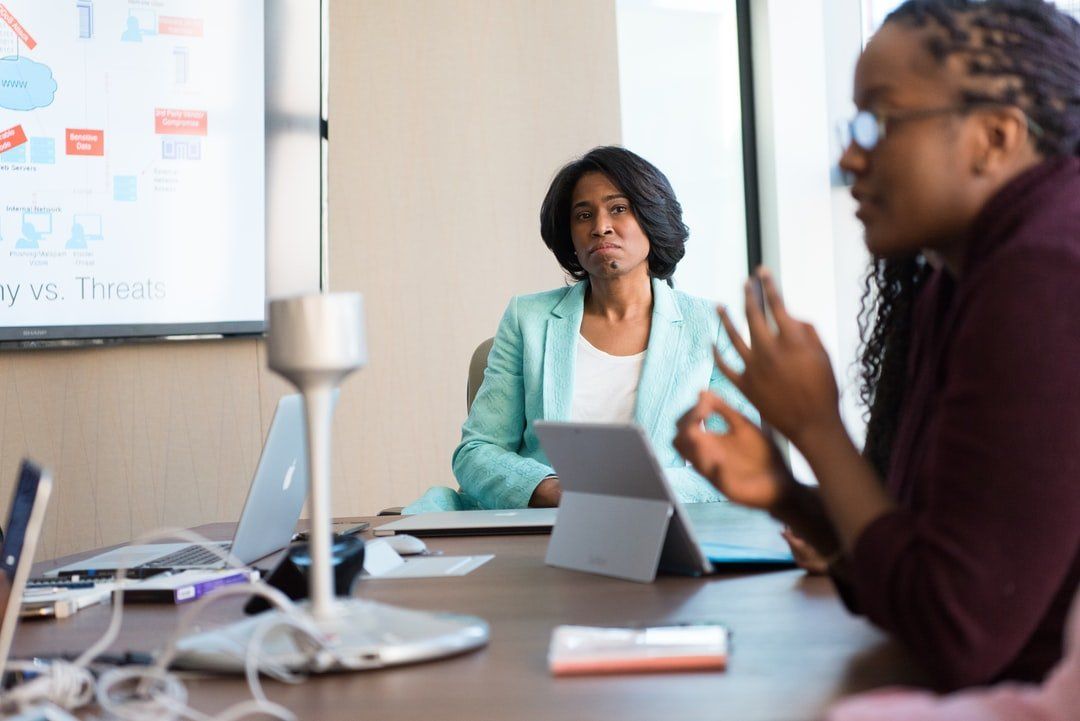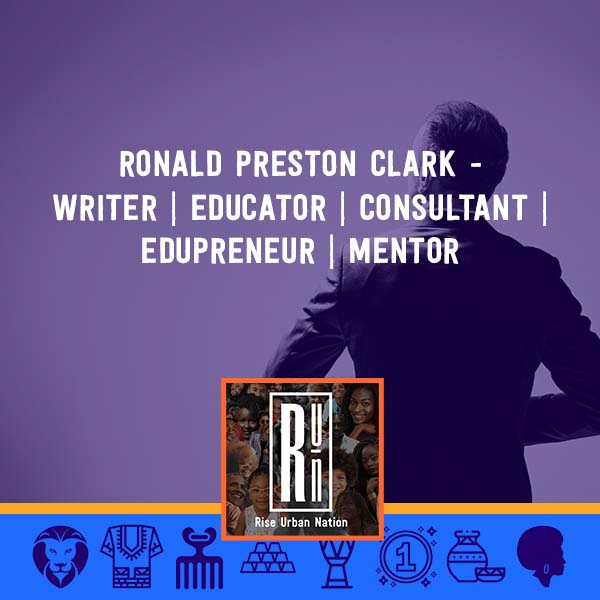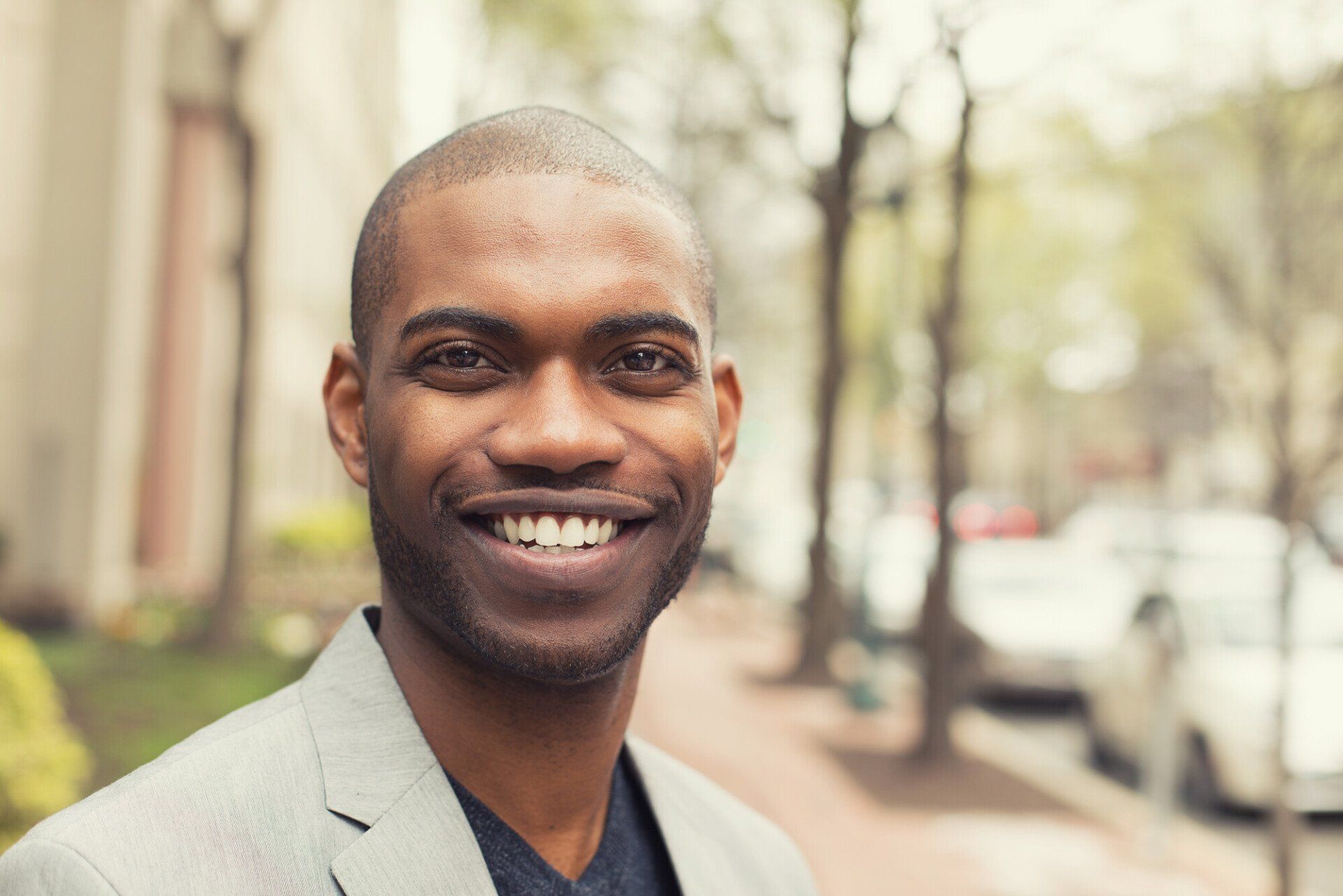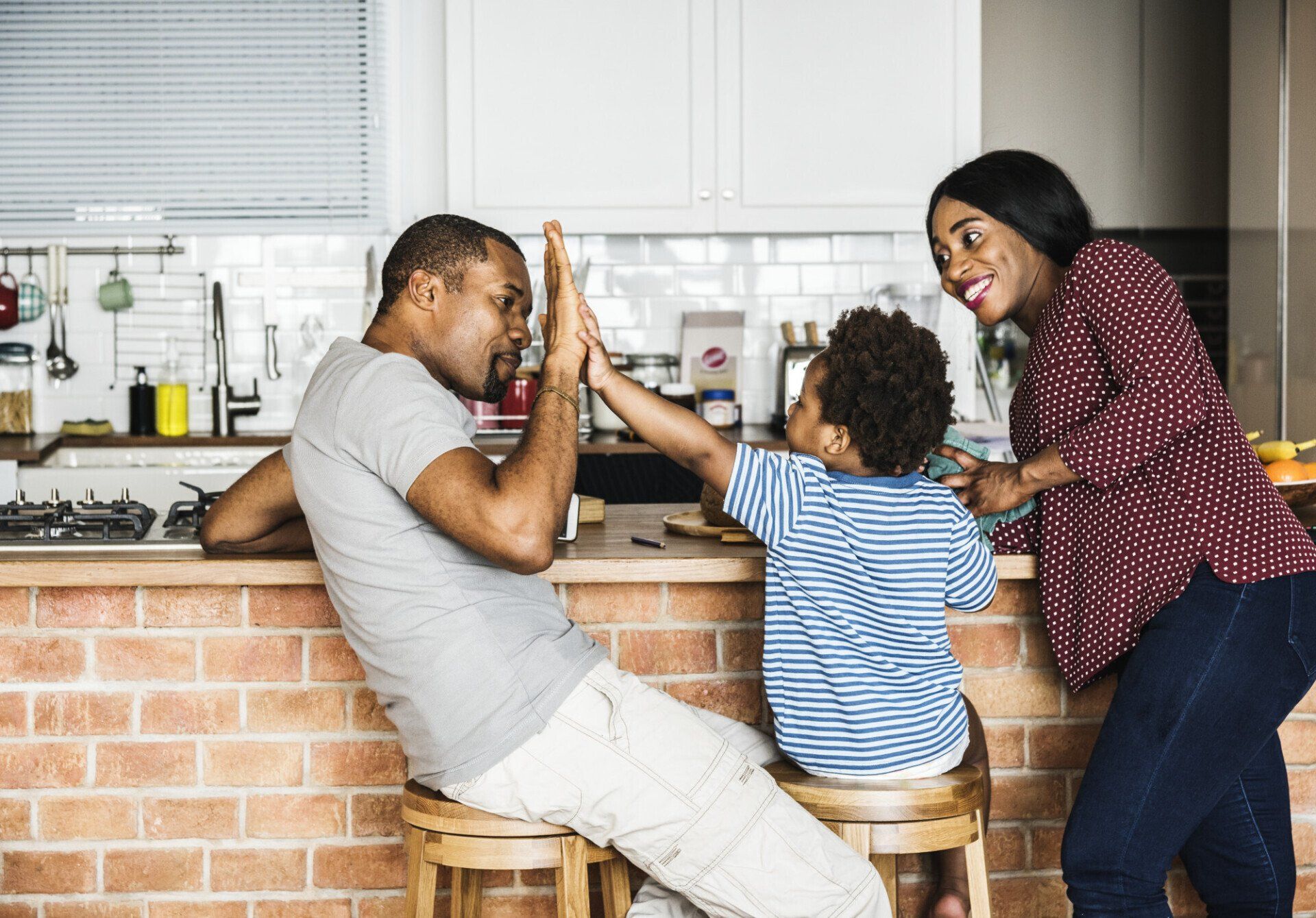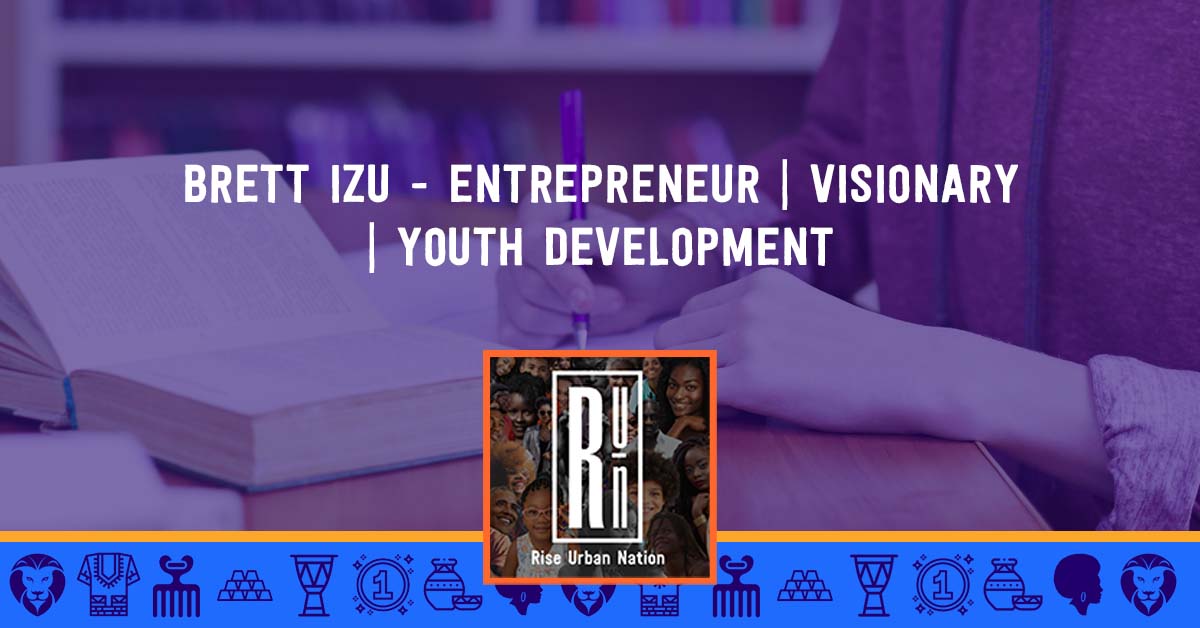Ronald Preston Clark - Writer | Educator | Consultant | Edupreneur | Mentor
Mental and emotional health are just as important as intellect and intelligence in the academe. Edupreneur, Ronald Preston Clark, joins Taryell Simmons today to discuss how he fights for safe spaces for Black men - young and old - to improve their emotional and mental health.
Ronald, born and raised in San Diego and a graduate of Hampton University, currently serves as a High School Humanities teacher at Urban Prep Charter Academy for Young Men in Chicago. He spent his 20s defining masculinity for himself in the same misogynistic environment in which many of our men grow up. Learn more as Ronald talks about flaws, transparency, and accountability and how growth through his own mistakes has charged him to lead others through literacy
Website: rprestonclark.com
Email: rprestonclark@gmail.com
Twitter: rprestonclark
Facebook: Preston Clark
Instagram: rprestonclark
We are currently surveying our listeners (or viewers) to learn more about you. Please take a few minutes and visit our website and click on the 'Listener Survey' link found on the home page. Thank you."
http://survey.podtrac.com/start-survey.aspx?pubid=ON_VODqpc104&ver=short
---
Listen to the podcast here:
Ronald Preston Clark - Writer | Educator | Consultant | Edupreneur | Mentor
Welcome everybody to another episode of the show. In this episode is a San Diego native and also my RISE San Diego Urban Leadership brother. He's on his journey out there in Chicago. I truly enjoyed this because not only do we do the same leadership program at RISE San Diego but we also had done several projects together from Brothers with Ties and book club. We do a lot of different things in the same spaces. I got to see him transform and go on his journey.
Ronald Preston Clark is a Hampton University graduate, University of San Diego Master's degree graduate and a student of RISE San Diego Leadership Fellowship Program. He was born and raised in San Diego. He fights for healthy spaces for Black men, young and old, to express themselves emotionally. They witnessed the variances of cisgender, male and female relationships among friends and family. He has spent his twenties defining masculinity for himself in the same misogynistic environment in which many of our men grow up.
His experience has changed him to lead others through literacy education and self-consciousness. He's quite the educator himself. He's also written the book Vinnie: A Love Letter. If you have read the book, it's a very powerful piece. I found myself doing a lot of reflection in his work of what he's written. We've often do reflection from the time of time where we speak and get our group of brothers together to discuss life things, celebrate each other and so forth. Let's get into this lovely discussion with Ronald Preston.
---
Ronald, it’s a pleasure. How did we first meet? Let's start from there because I'm fuzzy about this story. Could you take me down memory lane?
If I remember, I heard about you through Brothers with Ties. We started landing in the same circles. Iron sharpens iron and real recognize real. We started checking in with each other. The first time we officially worked together was when I invited you to Morris to speak to my kids.
I remember seeing you before brothers with ties. We hadn’t officially met, but it was at Queen Bee’s for a poetry thing. I don't know how I got to that poetry thing. I'm not sure if it was Nate or somebody else, but that's how I first saw you. I was like, “I like this brother a lot and what he's doing.”
It's funny how San Diego works with the Black community because if you're doing something, you're eventually going to run into each other. Several people are active in various forms. Whether you meet immediately or down the road, you're going to meet simply because you're active. It was destiny for it to go down.
That is no lie because there was a couple of times your name came up when I was doing connected careers back when I was at San Diego Workforce Partnership. I was putting some youth programs together. Two people told me, “You need to connect with Ronald with what you're doing.” They didn't have your direct line, so I was like, “Who's Ronald? How do I get ahold of him?”
Teaching may be a job, but education is a way of life.
That's happened with Jordan, Jelani and Eric. It's funny how all of us who associate with each other at the highest level ended up finding out about each other. With Jordan, for those who don't know him, I’m referring to Jordan Jerome Harrison, who is probably the greatest man in the history of San Diego. The first time I ever saw Jordan was he introduced Matthew Gordon at a Blue Heart breakfast. I don't know if Matthew was speaking, getting an award or something, but Jordan spoke. I was like, “This brother just introduced me to somebody and he’s dynamic.” That was the first time I saw him. I ran into him again at a Reality Changers Fundraiser. That was the first time we talked.
He was getting ready and preparing to go to Harvard. He introduced Matthew, so I thought he was in politics. I didn't know he was in education. Once I did Reality Changers, I found out he was an educator. I was like, “Him and I have got to rock.” Ever since then, we’ve been involved in the friendship and that’s my brother. It’s funny how those connections happen.
The reality is it was more float down, but I didn’t start rocking or hanging out and connected with Jordan after I left Workforce Partnership because he wasn’t there yet. If he was in some capacity but not like he is now. I have a hard time pinning you down in one job or career because even though you’re an educator, you’re in a couple of different lanes of spaces. How would you describe your career as we speak?
I refer to myself as a writer who teaches, not a teacher who writes. I’m a writer at my heart and soul, but the best form of giving back to the community is teaching. To be all-encompassing and still work with words, youth and education, teaching provide that platform. I wanted to make sure that I was always in a space where I was giving back. I never wanted to be in a job that took me away from that because I’m at my best when I’m in those settings. I consider myself as a teacher/writer more so an educator/writer because teaching is a job. Education is a way of life.
You can be an educator in various spaces and not teaching. Mentorship, nonprofit community, whatever it is that you’re working within, you can be educating others in that space. Financial advisors and mental health professionals, all those people are educators. The name is different, but they’re all under that educator model.
I take it very seriously. I’ll be in class with my kids and we might not do anything from the actual lesson plan that day. They might learn more in that class than they would on a lesson plan because we’re having life lesson conversations. They’re picking my brain and I’m asking them questions. We’re having dialogue that enhances their ability to think critically.
To me, sometimes that’s more important and there are even times where my kids will take advantage of that. I’ll never forget, I was at Gompers Prep in San Diego in an eighth-grade science class as a sub. I had a plan for the day and one of my kids asked me a question. I was like, “You want to know that?” He was like, “Yes, Mr. Clark. Can you talk about that?” I was like, “Sure.”
45 to 50 minutes passed, we are still talking about it. I’m like, “I guess we’re not going to get to the lesson, but that was a good conversation.” I look at him and he smiles. I was like, “You planned that.” He said, “If I don’t do any work, Mr. Clark and if I asked you a question, you would start talking.” They knew how it was. They do know I love the life lesson day. I was like, “You know your teacher very well that if you asked me a good enough question, I’d start answering it.” That’s the beauty of working with the youth.
I remember being invited to speak at the educator’s panel and it was all traditional educators in Pre-K, college and middle school. I was in this person who was holding the panel who wasn’t educated by the tray. I was like, “I’m not sure how the other people are going to feel because I’m not a traditional educator. Should I consider you an educator because of everything you’ve done in these spaces, what you’re doing with these kids and even what you’ve done for some teachers?”
In the literal academic world, I'm not viewed as an educator. I love that you put out in the universe the difference between teaching and education. Thank you for that. What was your first job? I always ask people that question. I like for people to see that. One, it's not where you start. It’s where you finished. Also, you probably learned lessons from your first job that carried you through life, and then we can talk about how you got it together.
My first paid job was in Foot Locker. When you talk about lessons, I got it because I volunteered through DECA, which was an organization when I was a part of my high school. We volunteered with the Foot Locker portion at the NFL experience when the Super Bowl was there. I had that volunteer experience and sold well while I was there, so I ended up getting the spot in Chula Vista. I got Chula Vista and he put me on schedule maybe 4 days in 3 months.
I don't know why. I don't know what his issue was with me or what the situation was, but he wasn't giving me hours. I wasn't even in the system. I was still writing down my hours. One of the things I learned was to make sure you're in the actual system. Time moved on and he wasn't giving me any hours. I got another job at KB Toys in Mission Valley. I started working there. I was working during Christmas break. They gave me a ton of hours during that time. I ended up meeting the Lady Foot Locker manager in Mission Valley because my best friend worked there. I was in the system in Chula Vista so I could work at Lady Foot Locker.
She started giving me hours over there and I started slinging, but I'm only going over there when other people don't need to work. I started working over at Lady Foot Locker whenever they asked me. My best friend would tell me in high school, “Somebody is missing. Can you come in?” I’m like, “Bet.” I had to catch the trolley and stuff. I didn't have a cell phone.
One day, he comes up to me and he's like, “Why didn’t you go to work yesterday?” I was like, “You didn't tell me I had to go.” He was like, “You're on a schedule.” I was like, “What?” They hired me based on the few days I had been there. The manager goes to Chula Vista to pick up my paperwork and the dude is like, “How's he doing?” It was a Black woman who took me under and she was like, “He's in the top ten of part-timers in the county in selling.”
I hadn't gotten paid for Chula Vista yet. My older sister walks into the store and goes, “Where's Carlos? I need to see Carlos. You need to pay my brother.” What's funny was I was on the floor at the time when she walked in, but my sister got me paid, though. The lesson from that was simply to make sure you are in the system and you speak up for yourself. “We need to be doing this properly and me not working for free.” Also, the learning process was when you do good work, good people will find you.
The woman at Lady Foot Locker only let me work simply because she got to know me through my best friend. She gave me a couple of trial runs. I went in there and did what I did. I was slinging. I ended up working there and it became my part-time job. In a 3 to 4 months span, I went from Chula Vista Foot Locker to KB Toys to Lady Foot Locker and Lady Foot Locker ended up being my high school job.
How did you get into writing? When did that start to take place?
I've always been a big reader and I tell writers all the time, “If you don't read, you're not going to be able to write.” Some people do write and do write fairly well who don't read a lot, but there's a plateau that you end up hitting because you're not analyzing and looking at other people's work. I've been reading my whole life and I started writing early, maybe in first grade. It was something that I loved to do. I played around with it.
My senior year in high school was the moment where I truly told people this was when I began writing. I was in my English class with one of my favorite teachers, Ms. Madden. She gave us an assignment where we had to write the first few lines before at the beginning of a book, but we had to get right into it. It wasn't like the slow beginning that you normally would have in a book.
I wrote my 2 or 3 lines about a girl losing her virginity and I read it in class. I read it with my head down and when I pulled my head up, it's nothing but jaws dropped all over the room. I was like, “Was it good?” She was like, “Yes. Can you make that longer?” She wanted to see where I would take it. I was like, “Yeah.” “I'll give you extra credit if you finish that and bring it to class.” I was like, “Bet.” I'm writing this one-page short story called Our Eyes Met. It was the day leading up to the virginity loss.
It's funny when I look at it. I can see what I was trying to do as a writer but I didn't know how to do as a writer yet. I wrote that. She loves it and I ended up writing 3 or 4 little short stories like that for her class for extra credit. When I leave high school to go to college, I get part of this group called Spark One, which is all the poets on campus. I was the curveball because I had short stories. I'm writing these short stories and all my poet friends kept going, “If you strip the language of your short stories, you're writing narrative poems.”
If somebody reads your writing and tells you that they see themselves in it, that's one of the best compliments you can get.
I started to dive and work the poetry. That's why I became a narrative poet because I came from short stories and I turned those stories into poems while still telling stories. I started writing my poems and my junior year in college at Hampton was the first time I memorized a poem. My favorite line I've ever written in a poem is from that poem. It goes, “As our words intertwined and our hearts crisscrossed, Christ and our combination is the second coming of Adam and Eve.” There is so much alliteration in there. This is the rhythm. I love that line, so I memorized that. A lot is going on in that line.
What's crazy is that I wrote that poem for an HIV event we had on campus. The poem itself is about a young man who sleeps with a woman, not realizing that that woman had received HIV from someone else. As a form of payback, she gave it to somebody else. It's this whole cycle. I wrote it for that. In senior year, I became part of this group called the Left Side Poets. It was about 8 or 9 of us we ended up publishing a book in 2011. That one is called The Left Side Poets Present Strange Fruit, which is a collective poetry book. We won a National Underground Spoken Word Poetry Award for poetry books. That happened in 2011.
My degree is in Journalism. I was headed to ESPN. That was my original route. One of my best friends works for the SEC Network. I was doing all the journalism stuff. I was in three nationally recognized programs in college. I had three internships. I wrote for MLB.com. I was doing big things. After college, I moved to New Jersey and worked for a newspaper out there for three years, but while I was there, I fell out of love with journalism. I didn't like the day-to-day grind and the nitty-gritty stuff. It took away a lot of my creativity.
In the midst of that, I started falling in love with screenwriting. I wrote 3 or 4 scripts while I was in New Jersey. I moved back to California in 2011, not to teach and poetry but for screenwriting. I ended up going to the UCLA Professional Program in Screenwriting for a year. My screenplays are being read by Michael B. Jordan, Ava DuVernay, Salli Richardson-Whitfield, Regina King, Jurnee Smollett and lots of other pretty heavy names assessing my stuff. One of my screenplays was supposed to be produced by Isaiah White before he walked them off. I can’t rock with him now because of him being a Trump supporter.
I was on the 2013 elevated slam team that finished fourth in the country. I hosted my open mic, Lyrical Exchange, for four years. I was always in this creative and writing space, but nothing had popped off at the level that I thought I could pop off at. I had chances and things that were working out or getting close but not getting over that hump. It wasn't until I wrote Vinnie: A Love Letter that I truly found myself exactly where I was supposed to be as a writer.
It’s a great story and testimony. I'm glad to read those words. There are a lot of people that I’ve run into that read your book and said how much it had impacted their life. Sometimes, I see a little bit of Vinnie in myself and my relationship with my pops growing up. There are little pieces in there that speak to me like, “I felt that one.”
The thing that I want to tell young people is that journalism, screenwriting and poetry, all three of them feed into each other to help me write my prose. Every experience that you have as a professional, a creative and a person feeds into future experiences. That's why they call it an experience. I could not have written Vinny at 25.
I hadn't gone through what I needed to go through yet. I hadn't developed and matured yet. My growth hadn't occurred at the rate that it needed to at 25, but at the age that I wrote it, that last 64% of that book, I was in pain. I had a relationship that ended and was mourning a miscarriage. I needed something to do, somewhere to put that energy.
The pathway that you took is very unique to your writing career. Somebody's looking at it like, “I got to become a writer. I don't want them to feel that way.” What advice would you give to someone who would like to start a career as a writer or in your industry? What advice would you give them that you've been in several different spaces?
Reading with the intent to learn is my first thing. Most of the time, when we pick up a book, a magazine, screenplay or whatever it is, we're reading for information or entertainment. Those are usually the two reasons why we're reading. When you're reading for craft and to study, it’s a different kind of reading. When I'm reading James Baldwin, I'm paying attention to his syntactical structure, diction, use of punctuation, and dialogue. I'm analyzing his craftsmanship.
If you're a basketball player and you're watching a basketball game, some people are going to watch it simply for the score and the dunks, but if you're a hooper, you're like, “That backdoor cut was nasty. His in and out was nasty.” You're paying attention to, “They're open at the elbow. They ran a triangle. They ran motion offense.” You're paying attention to the nuances of the craft. You're looking at the game within the game.
As a writer, you have to read for the craft. Read bad writing and read good writing because you need to know apart those two things. When you're writing badly, you're able to recognize it. One of the reasons why I'm not a fan of Tyler Perry is because he said out of his mouth that he doesn't take criticism. There were criticisms from Spike Lee, Robert Townsend and different people to who he should have been listening to.
I can tell from him saying that that he doesn't read or look at other people's work because if he did, he'd recognize his was bad. You have to read bad and good writing to recognize what those things are. You need to know what it looks like to craft sentences, tell stories, put together structured stories and write dialogue. You have to do those things. James Baldwin is the GOAT. He is the greatest writer that ever walked.
People don't even fully grasp what they’re reading at times and understand what it took to put that body of work together.
You find your favorite writers. My Mount Rushmore is James Baldwin, Toni Morrison, Junot Diaz and Tim O'Brien. Colson Whitehead is looking to take a spot because he's the best novelist in the country to me. Ta-Nehisi Coates is amazing. If somebody reads my writing and then tells me that they see one of them in my writing, that's one of the best compliments I can get. That happened to me. I've had people say they saw Morrison, Baldwin and Diaz in my style, but it's still my style. If it wasn't for me reading from those greats, from those who've mastered their craft, I wouldn't be the writer I am because the best writers steal from the best writers.
Let's take it simpler. One thing that you've done that I love and admire is that you've been able to take your pain and put it into purpose by practicing this beautiful story. That’s something I hope to do in my lifetime. I'm not looking to be a world-renowned writer, but I've had some pain and traumas in my life. Some of it I overcome and some of it I'm still in the midst of overcoming.
At some point, I want to put that into some literature or writing and give the lesson to the people. How do you begin to even do that and unpack that? I feel like that's an emotional process. To pin that down and then do it in a structural way to let people in so they get that feeling and the lesson from it too, how do you do that?
In order for you not to hurt others, you have to channel all that hurt and all that pain into a safe space.
It honestly comes back to self-reflection, transparency and accountability. To write from pain, you have to acknowledge that you're in pain. A lot of people don't even do the acknowledgment process. “I'm okay, good, fine.” I was not good, okay and fine. My friends and family knew that. They also understood that me writing my book was my therapy. It was very cathartic for me. Going through that process and channeling that type of energy into that one project was necessary.
I often tell people, “I was scared to write my second book because I was worried that I was going to be Mary J. Blige.” They were like, “What do you mean?” I said, “Mary’s best music was when she was in pain.” I don't like happy Mary. I don't like her music when she's happy. She's not the same artist. With no more drama, I’m like, “I want more drama. I need you to be in a terrible situation.”
I wrote Vinnie when I was in pain and now I'm happy. I’m in this great emotional and mental space. I love who I am. I was worried. I'm like, “I'm not going to be able to create at the level that I did with this last book if I'm not in the same mental space.” With the second book, I have to focus on the craft itself and not the emotion. The first book was very raw. This one's going to be much more strategic in what I plan on doing.
One of our dear friends in the community in San Diego, Brisa Lauren, dropped her first solo music project called In Her Stillness and The Lyric Book. You talk about digging deep and telling stories. The beauty of writing from pain is that because we're humans, somebody is going to fill it. There is no such thing as singular pain. No one person is the only person to go through what they've gone through.
When you’re writing, even though you're writing for yourself, someone somewhere is going to find something in it. Brisa got dudes over there with their feelings because they're still feeling what she's writing and she's writing it from a woman's perspective. My sister loves her songs because she’s speaking to her and that was Brisa’s way of getting through what she was going through.
I roast Capricorns in Vinnie. Why? It’s because the person who caused my pain at that time was a Capricorn. I went off on Capricorns. I don't know, but I have to do it. It was therapy for me because instead of me causing others pain to heal because people hurt people, for me not to hurt others, I had to put all that hurt and pain into a safe space, which was my book.
By doing so, I ended up with a book that placed into the 28th Annual Writer's Digest Self-Published Book Awards where 1,800 books were submitted into the competition in 9 categories and I'm one of the ones that were selected. It was clear that that pain was for a reason. Now I'm able to continue with my career without even having to write in that pain anymore but knowing what I’m capable of because of the pain. That's why I'm okay with the pain.
You don't have to connect with the whole girl because that's on my radar.
You can see her stuff on YouTube and Spotify. She got her stuff on there and I keep her in rotation. She’s a beautiful, awesome and intelligent woman who works in the community in San Diego. Real vibrant, with lots of energy, amazing on stage. She's the lead singer for Lyrical Groove as well. I'm so proud of her for this project. As somebody who writes from pain, I could feel hers. I was like, “I see where you went with.”
You're heavy in the writing industry, working on Vinnie too. What do you think the future has in store for the writing industry? What does this space look like in the future as we start to connect with more Black writers and get to hear their stories? What do you see?
What's interesting is the pandemic and our agent I was speaking to told me this. She said, “During this pandemic, the one group of published writers that are benefiting from the pandemic are writers of color.” Why? It’s because more of us are sitting down in our homes and looking for things to do. Without having the access to a lot of the things we previously did, we're getting back to reading.
This is a great time to be a Black writer and be a writer of color. Due to the many fights that our creators have had behind the scenes in the film and TV industry, you're getting more of our images on the screen. The only person who has a blank page is the writer. Producers, directors, actors, everybody gets a finished script. The only person that has a blank page is the writer. As time has progressed, writers are getting more respect.
When we had the writer strike a few years ago, actors and actresses were almost in tears, “Can you please take care of this because we need our writers?” You don't work without the writers. We’re the backbone of the industry. I don't care what anybody says. You can't direct words. Writing is always going to be here. It's always been here. You have different ways in which it shows up.
The little TikTok videos and stuff take writing. This web series on YouTube is through writing. I tell my kids who play video games all the time that the little mini-movies they have at the beginning of these RPGs and stuff, somebody wrote the script for that. Somebody writes everything. Everything we enjoy when it comes to entertainment, literature, whatever, somebody had to write.
All you have to do is decide if you want to enter the industry, which part of it you want to enter. Find mentors or these people to look up to from afar that are in those industries and then you listen. I got mentors in journalism, poetry, screenwriting and prose. With the first three, I got heavy hitters on my list like monsters in the game and people were like, “You talk to Kobe.” Jemele Hill was my big sister, but that was the whole world. That was one of the big supporters of my career. I've written for Jim Rohn or attempted to.
Chris and I started having lunch. Mark Spears has gotten me into a club. I was headed to ESPN. When I left that industry, some of them stayed with me and some of them didn't. I always found a way to get myself in front of people. I opened my mouth. If you close your mouth, you don't get fed. I had issues with some people because some people thought I talked too much, but I was like, “Nobody's going to know me if I don't speak. I'm not going to get the information that I need if I don't speak.”
At the time, I was 25 and nobody wanted to talk to me. I was telling somebody like, “I'm at 5 or 6 books for you and I've been called intimidating by people.” It's not because of my stature or how I'm physically in the room. It's my presence, voice, intellect and sense of humor in that room. I had to use my voice to fill up space because my stature didn't fill up the space for me. I wasn’t going to have anybody approaching me or want to talk to me if that wasn’t the case.
I had to take some losses because of that. I'm very aware and understanding of those losses I had to take, but I had to do what I needed to do to get myself in front of certain people. Now, I have a national network that I can tap into at any point in time because I spoke up in every environment that I was in. If I was in a program and it was four days, everybody in that program over those four days was going to at least talk to me once. You are going to remember me.
I don't see it as a loss and if it was a loss, it wasn't a loss on your part. Everybody plays a role and that's the role they were meant to play in your life, whether it’d be an inspiration, admiration, bystander, hate or whatever role they play. Let them play their role so that you can play your role. What projects are you working on? Where can people find you?
I’m working on book number two, technically the sequel to Vinnie. It's more of a standalone, but it has the Vinnie story in it. It's called I Love You, Walter. It originally was going to drop in 2021, but I signed with a literary agent. The thing that can be supported is in February 2022, I'm hoping, but COVID is going to determine that, but I'm going to be dropping the second edition of Vinnie: A Love Letter. I have a new cover and acknowledgments. Some people are taking it out and some people were added. It'll also have the judge’s comments from the contest.
You have to acknowledge that you're in pain to be able to go through the whole process of self-reflection, transparency, and accountability.
Tell the people the awards you won. Stop being modest.
I was able to place in the honorable mention category for the 28th Annual Writer's Digest Self-Published Book Awards. It was 1,800 books submitted. I was selected amongst the top in the mainstream literary fiction category. That was a major event for me. It gave me a lot of vindication and understanding that it wasn't just people who knew me who were supportive of the book but also people who had no emotional connection to me who still rocked with it.
The primary reason for the rerelease of the book is that they gave me one of those little award seals that you can put on the front of a book. It would say, “It's 2020 Self-Published Book Awards honorable mention.” It's going to be on the front. It’s cool because people always talk about, “I got the first edition of this book.” We passed 815 copies in two years.
People who have the first book also have the “First Edition” of Vinnie: A Love Letter. Some people want to buy the second one, even if they have the first one, which is awesome. We're going to drop that hopefully in mid-February 2022, as well as we're going to be dropping the audiobook of Vinnie: A Love Letter, which a lot of people have been asking for. I'm not reading it. My dear friend, Mr. Aman Ra, who is a celebrated poet in San Diego who lives in North Carolina because that's where he's from, is the one who is reading the book.
I wanted a different and poetic voice I could trust. Ra is doing that for me. In February 2022, the audiobook should drop. The second edition of Vinnie should drop. Feel free to support that at RPrestonclark.com. Feel free to check that out. I also still have the limited edition hoodies. It’s still available. It's a hoodie that has artwork from pages 180 and 181 of Vinnie: A love Letter. A wonderful artist in Chicago was able to bring to life that section of the book. We put it on the front of the hoodie, so that's out as well. I'm still living off of Vinnie in a lot of ways.
The creation of that character has completely changed my life in many ways. A lot of people don't know that Vinnie was a character in a previously written screenplay of mine. It was a screenplay called Play Clothes that I wrote in that program at UCLA. He was a secondary character in that screenplay, but he was my favorite character and so I always wanted to do something with him on his own. I originally thought it was going to be another screenplay, but when I got the opportunity to write from a friend's website, I took him out of that screenplay, fleshed out his story and the rest is history.
Ronald Preston Clark, it's been a pleasure. We could do this all day. I want you to end off with this. What books have you read? What do you marinate with? Give that to the people.
I'm reading SOL Affirmations: A Tool Kit for Reflection and Manifesting The Light Within by Karega Bailey. It’s a book of affirmations. That's my small thing. This is why I say diversity is key. I'm reading those affirmations. I'm reading two magazines on Kobe. One of them was right after he retired. They did a whole issue on him and then the one where he passed away. I love eating off of Kobe's words and Michael Jordan's words. They were determined at the highest of levels. I'm reading Defining Moments in Black History by Dick Gregory. It serves as my pseudo textbook for my class. My Baldwin is If Beale Street Could Talk. That's the literature that I’m into.
Kids don't realize that if you're reading magazines, even if it's a car magazine, fashion magazine, whatever it is that you're interested in, you're still reading. Don't make it seem as if just because it's not a book, that you're not reading. As educators, mentors, parents and counselors, we need to start letting our kids know more often that you still are consuming words and literature, even if it's not in a traditional way.
Ronald Preston Clark, thank you again for coming through. This has been another episode of the show. Go check out my brother’s second book coming soon.
Important Links:
- RISE San Diego Urban Leadership
- Ronald Preston Clark
- Vinnie: A Love Letter
- The Left Side Poets Present Strange Fruit.
- MLB.com
- Lyrical Exchange
- In Her Stillness
- The Lyric Book
- YouTube - Brisa Lauren
- Spotify - Brisa Lauren
- Lyrical Groove
- SOL Affirmations: A Tool Kit for Reflection and Manifesting The Light Within
- Defining Moments in Black History
- If Beale Street Could Talk

